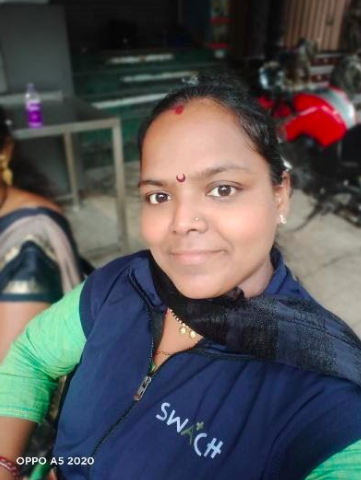By Sia Nowrojee, Executive Director, 3D Program for Girls and Women
When community members are involved in their own development, we can achieve more. The 3D Program for Girls and Women is committed to advancing gender equality by facilitating the participation and leadership of women in local programs. Together with our partners, the waste pickers’ union (Kagad Kach Patra Kashtakari Panchayat (KKPKP)) and cooperative SWaCH in Pune City, India, we are doing this while working to advance the social inclusion of waste pickers, over 70 percent of whom are women.
The first step in this process was a mapping of the barriers that waste pickers and their families face in accessing social welfare benefits and entitlements. The next step was designing a solution – a hub-and-spoke model, comprising a central workers resources center (Kashtakari Sadhan Kendra) and a network of community-based satellite centers (Kashtakari Seva Kendras) to improve access to programs, opportunities and entitlements. The centers are located in the slum communities where waste pickers live, are open during hours when waste pickers are not working and are staffed by local community members.
The Kashtakari model was put in place about a year before the COVID struck. Since then, there have been significant increases in the enrolment of waste pickers and their family members in programs across sectors, particularly health programs and education scholarship programs. During the pandemic, many of the programs waste pickers rely on were disrupted and barriers to access were exacerbated. Designed to address those barriers before the pandemic, the Kashtakari model has proved effective in facilitating vital flows of information and lifesaving supplies during the crisis.
The community kendras have also provided opportunities to empower the young women who work with them as community mobilizers. These young women, who typically are Sunbais or daughters-in-law of the waste pickers, are now earning a livelihood, many for the first time. They are also challenging prevalent social norms and stereotypical expectations that young wives and mothers should prioritize their family’s domestic requirements and be home in the evenings. The Sunbais are learning new skills, increasing their mobility, growing in confidence and becoming more assertive. As they are being recognized as indispensable resources in the community, their social status within their families has improved, and their social capital in the community has increased.
The Sunbais are aware of the importance of the work they do and the impact it has had on their own lives:

My work has changed the dynamics within my family. Everyone views me differently now. They respect me more now, for what I do for others, and for what I am. I now make decisions confidently and my family accepts my point of view without argument. My opinions matter and often shape theirs too. In the same way, union members also question me less and accept my recommendations.
– Vijeta Salve, Dandekar Pul Kashtakari Seva Kendra
I used to be lost in household chores. Now, I have stepped out and I feel I have seen the world. My problems seem trivial in the larger context. Earning some money and being able to contribute to the family is empowering.
– Gauri Waghmare, Shivajinagar Kashtakari Seva Kendra
My work has helped me grow. I am out of the house, and I have started interacting with more people. I understand people better now. I have begun to make big decisions comfortably. Traveling used to be a big challenge, but now I have stepped out, it is easy, and my mobility has increased my overall confidence. I ask my husband to help with some of the housework and he obliges. Now we take all decisions together and consult each other on everything.
– Reshma Barik, Taljai Kashtakari Seva Kendra
After over 27 years of mobilizing waste pickers to gain voice and strength at the municipal, state and even national levels, the Kashtakari Seva model is proving to be a platform through which KKPKP and SWaCH are re-energizing and expanding mobilization, strengthening collective action, raising their profile and level of activity in communities across the city, and engaging newer and less active members. Outreach to members has improved through the Sunbais, who can quickly and easily reach the members within their jurisdiction. The union has been able to reconnect with members they lost touch with and reach younger, new members. Additionally, the success of the Kendra teams in facilitating emergency responses during the COVID-19 pandemic demonstrated the power of both the model and collective action at the local level.

